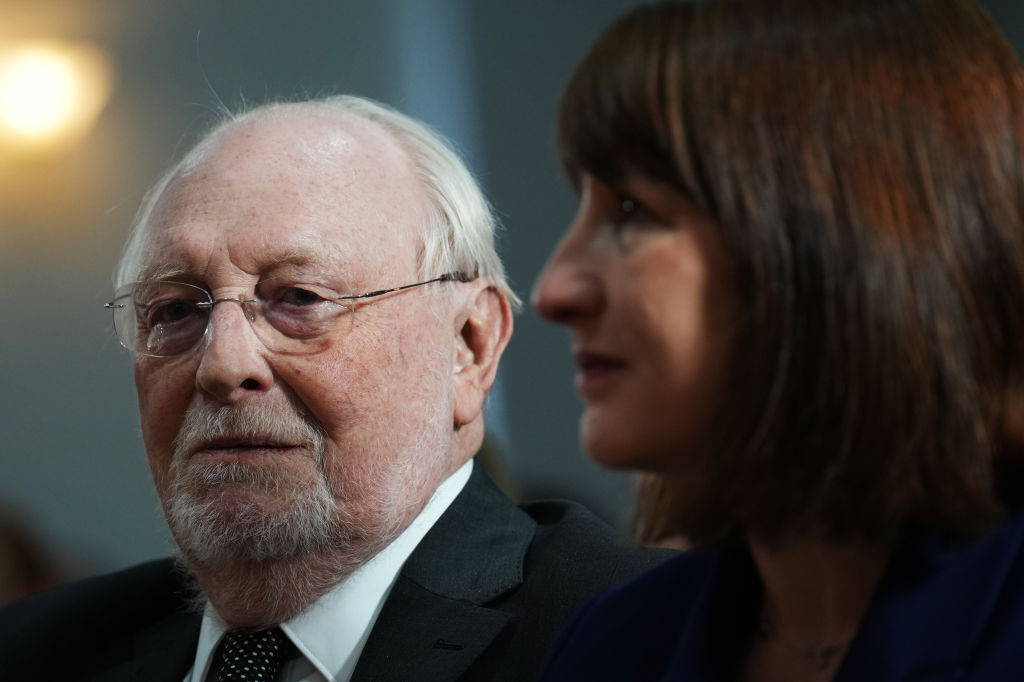'Labour’s next bright idea is a wealth tax – but it won't work'
A wealth tax will make Britain poorer and accelerate the exodus of the wealthy, says Matthew Lynn.


Get the latest financial news, insights and expert analysis from our award-winning MoneyWeek team, to help you understand what really matters when it comes to your finances.
You are now subscribed
Your newsletter sign-up was successful
Want to add more newsletters?

Twice daily
MoneyWeek
Get the latest financial news, insights and expert analysis from our award-winning MoneyWeek team, to help you understand what really matters when it comes to your finances.

Four times a week
Look After My Bills
Sign up to our free money-saving newsletter, filled with the latest news and expert advice to help you find the best tips and deals for managing your bills. Start saving today!
A wealth tax used to be an idea restricted to the battier fringes of the far left. It might be championed by the people who sell Socialist Worker on the high street on Saturday mornings. But it has no place in mainstream politics. In the last few weeks, that has started to change. Recently, Neil Kinnock, the former Labour leader who in many ways represents the soul of his party, and still has a loyal following among members, advocated a 2% annual levy on anyone with assets of more than £10 million. Lots of backbenchers are calling for a wealth tax, and so are many of the Labour-supporting newspapers, magazines and think tanks. It is becoming normalised. And that is a big step towards it being implemented.
In her first Budget, chancellor Rachel Reeves imposed a hefty £40 billion of taxes and authorised an extra £30 billion of borrowing. Even that is nothing like enough to cover the spending of the British state. The tax rises have raised less money than was planned – surprise, surprise, it turns out people don’t like paying extra tax – while a series of U-turns on issues such as welfare reform and the winter fuel allowance, coupled with big pay rises for the public sector, have sent spending way up. The result? Another £40 billion or more in tax rises will be needed by the time of the Budget in the autumn.
Reeves does not have many options. During the election campaign, she promised not to raise any of the three main taxes – income tax, national insurance and VAT – and it is hard to raise any of the minor taxes by enough to fill the gap. She could put up corporation tax, perhaps in the form of a “temporary surcharge”, as France did last year, or she could put up fuel duty. But otherwise, she is out of options. That is where the wealth tax comes in. It is one of the few measures that might raise some proper money, and it would appeal to the left of the Labour Party, especially on the backbenches. The 2% annual levy supported by Kinnock would, at least according to its advocates, raise an extra £11 billion a year. If the threshold were lowered and the rate raised, it would bring in more.
MoneyWeek
Subscribe to MoneyWeek today and get your first six magazine issues absolutely FREE

Sign up to Money Morning
Don't miss the latest investment and personal finances news, market analysis, plus money-saving tips with our free twice-daily newsletter
Don't miss the latest investment and personal finances news, market analysis, plus money-saving tips with our free twice-daily newsletter
'A wealth tax will drive the wealthy out of the UK'
The problem is that it would also accelerate the exodus of the wealthy. It is already well underway. A report earlier this month by the relocation consultants Henley & Partners found that the UK topped its league table of the countries that millionaires were leaving; it topped both Russia and China for the first time. Almost every day brings fresh news of someone leaving. Goldman Sachs’s vice-chairman Richard Gnodde left London for Milan earlier this year. Steel billionaire Lakshmi Mittal is reported to be leaving now that non-dom status has come to an end. The billionaire founder of the fintech unicorn Checkout has left for Monaco. The list goes on and on. From established billionaires, to tech entrepreneurs, to City power brokers, the UK is driving the wealthy away.
A wealth tax is only going to make that a lot worse. A 2% rate may sound modest, but year after year it starts to add up very quickly. Even more seriously, it eats into returns. If inflation is running at 3% a year, a normal rate for the UK, and you are also paying a 2% wealth tax, then you need to be generating 5%-plus on your assets just to maintain the wealth you have built up.
As any investment manager will tell you, that is not always possible.
So why wouldn’t you leave? Anyone with £10 million in assets – even if some of it is in the form of a house or a pension fund – by definition has plenty of options. They can move to one of the countries, such as Italy or Greece, now offering a flat-rate tax deal. They can head to tax-free Dubai, or one of the traditional tax-free islands of the Caribbean. There are plenty of flights, and the internet has made it easier to run a business remotely than ever before. Anyone who thinks they won’t leave is kidding themselves. Labour think tanks said that about the non-doms, and they left in droves. The same will be true of the wealth tax. The reality is that the Labour government is intent on driving out wealth and talent. They will take money, jobs and investment with them. Wealth taxes will make the UK poorer and poorer – until the electorate wakes up and realises they just don’t work.
This article was first published in MoneyWeek's magazine. Enjoy exclusive early access to news, opinion and analysis from our team of financial experts with a MoneyWeek subscription.
Get the latest financial news, insights and expert analysis from our award-winning MoneyWeek team, to help you understand what really matters when it comes to your finances.

Matthew Lynn is a columnist for Bloomberg and writes weekly commentary syndicated in papers such as the Daily Telegraph, Die Welt, the Sydney Morning Herald, the South China Morning Post and the Miami Herald. He is also an associate editor of Spectator Business, and a regular contributor to The Spectator. Before that, he worked for the business section of the Sunday Times for ten years.
-
 How a ‘great view’ from your home can boost its value by 35%
How a ‘great view’ from your home can boost its value by 35%A house that comes with a picturesque backdrop could add tens of thousands of pounds to its asking price – but how does each region compare?
-
 What is a care fees annuity and how much does it cost?
What is a care fees annuity and how much does it cost?How we will be cared for in our later years – and how much we are willing to pay for it – are conversations best had as early as possible. One option to cover the cost is a care fees annuity. We look at the pros and cons.
-
 "Botched" Brexit: should Britain rejoin the EU?
"Botched" Brexit: should Britain rejoin the EU?Brexit did not go perfectly nor disastrously. It’s not worth continuing the fight over the issue, says Julian Jessop
-
 'AI is the real deal – it will change our world in more ways than we can imagine'
'AI is the real deal – it will change our world in more ways than we can imagine'Interview Rob Arnott of Research Affiliates talks to Andrew Van Sickle about the AI bubble, the impact of tariffs on inflation and the outlook for gold and China
-
 Tony Blair's terrible legacy sees Britain still suffering
Tony Blair's terrible legacy sees Britain still sufferingOpinion Max King highlights ten ways in which Tony Blair's government sowed the seeds of Britain’s subsequent poor performance and many of its current problems
-
 Rachel Reeves is rediscovering the Laffer curve
Rachel Reeves is rediscovering the Laffer curveOpinion If you keep raising taxes, at some point, you start to bring in less revenue. Rachel Reeves has shown the way, says Matthew Lynn
-
 ISA reforms will destroy the last relic of the Thatcher era
ISA reforms will destroy the last relic of the Thatcher eraOpinion With the ISA under attack, the Labour government has now started to destroy the last relic of the Thatcher era, returning the economy to the dysfunctional 1970s
-
 Investing in forestry: a tax-efficient way to grow your wealth
Investing in forestry: a tax-efficient way to grow your wealthRecord sums are pouring into forestry funds. It makes sense to join the rush, says David Prosser
-
 'Expect more policy U-turns from Keir Starmer'
'Expect more policy U-turns from Keir Starmer'Opinion Keir Starmer’s government quickly changes its mind as soon as it runs into any opposition. It isn't hard to work out where the next U-turns will come from
-
 Britain heads for disaster – what can be done to fix our economy?
Britain heads for disaster – what can be done to fix our economy?Opinion The answers to Britain's woes are simple, but no one’s listening, says Max King